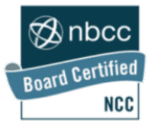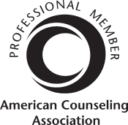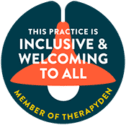OCD Therapy
Find out why you need OCD therapy and what you need to know about OCD Therapy
What is OCD?
Obsessive Compulsive Disorder (OCD) is more than just liking color coordination in your closet, organizing, or personal preference. As a culture, the term OCD gets tossed around frequently. This general use of the term OCD causes confusion about what an OCD diagnosis means. OCD is an anxiety disorder, that among other emotions causes fear, anxiety, worry, distress, and panic symptoms. This disorder is categorized by having obsessions and compulsions that occupy more than 1 hour of your day and cause distress in your life and having either obsessions, compulsions or both.
Obsessions
Obsessions are ruminating thoughts, images, and/or impulses that a you cannot dismiss. These thoughts are intrusive, concerning, and can occupy your mental energy day to day. The presence of these thoughts may get in the way of work, relationships, cause emotional distress, embarassement, and impede your ability to connect with others. Examples of obsessions are:
Someone being harmed/hurt
Becoming sick
General uncertainty, uncomfortableness, fear, or doom
Worries that you have done or will do something bad
Compulsions
Compulsions are ways in which the anxiety is neutralized or lessened. A compulsion is a mental or physical act or ritual completed. The compulsion or action temporarily helps the anxiety go away or lessen. You might find yourself completing many compulsions throughout the day until the task or thought feels, “just right”, “good”, or is balance in some way. Compulsions can look like repetitive actions and behaviors such as,
Arranging items until they feel right
Saying or thinking positive statements aloud to override bad thoughts
Checking and rechecking items
Being unsure that you completed an action (such as shutting off the iron or stove)
Unsure if the thought you had was only a thought and not something you did
These behaviors happen despite the ability to logically remind yourself that what you are thinking/feeling cannot actually happen. If this describes you, you might benefit from behavioral therapy for OCD. OCD manifests in many different ways unique to each person.
I am not sure if I have OCD, isn’t it normal to worry about things, people, or avoid danger? Yes, its normal to worry about things and avoid danger. However, with OCD these worries, avoidances, compulsions, or intrusive thoughts take over your day or rip you away from the things you enjoy. If you aren’t sure, here is a link to an online measure that can help sort through OCD and non OCD behaviors.
http://psychcentral.com/quizzes/ocdquiz.htm
Why people avoid treatment and OCD therapy
Often people who struggle with OCD hide a huge part of who they are because they are embarrassed or protective. This makes it hard to admit that you are overrun with what OCD requires you to do everyday. Even making an appointment for therapy means that you will have to face change and fear. If your OCD obsessions and compulsions are wreaking havoc on your life, its time to seek support. You do not have to be alone in this.
What is the standard treatment for OCD therapy?
There is no cure for OCD. However, you can learn to manage and/or eliminate some of the OCD obsessions and compulsions. The standard accepted and evidenced based treatment for OCD Therapy is Cognitive Behavioral Therapy (CBT) and a specific form of CBT called Exposure and Response Prevention (ERP). In this therapy, you can learn to face anxieties, worries, disturbing thoughts, and compulsions with exposures plans and strategic interventions to help you identify core fears to challenge and manage OCD with therapy in your life. In the practice, we use mindfulness based CBT with the ERP therapy and Acceptance and commitment therapy (ACT), which allows you to learn ways to resource anxiety and fears between sessions and use the learned skills as coping tools while engaging in your exposure plans. The work you do in therapy is vital to your life outside of our sessions.
How OCD impacts friends and family
If a friend or a family member is struggling with OCD, it can be extremely time consuming, frustrating, and keep you trapped in rituals and “workarounds” in your household. Often, it seems like it’s easier to just help them. OCD impacts families and friendships, so please give us a call at (720) 295-9522 to see how we can help or you can click the link below to find educational resources from the International OCD Foundation.
In conclusions, OCD is not a term to use lightly, it is a specific disorder that is very impactful on a persons day to day activities. Please call (720) 295-9522 to find out how we can help with Obsessive Compulsive Disorder OCD for Therapy in Lakewood. Because ERP therapy is the most effective way to fight OCD, we utilize this therapy as the way to manage this disorder. We will start with a phone conversation to gauge how you a impacted by OCD. Then we will schedule you for an intake session when were can assess your OCD. CBT and ERP therapy is structured to work on goals and completing exposures in therapy and at home. Sometimes, we will work outside of the office in places such as in your home or out in the community to provide real life exposures to combat OCD.
I do not trust the treatment for OCD therapy
We are sure that you have lost some element of trust in others and yourself. OCD tricks the mind into sending of alarm signals very often. With OCD being untreated, your obsessions and compulsions will only become deeper and well routined that it makes them more difficult to break later. ERP, CBT, and mindfulness therapy are shown to be the best course of treatment for OCD. Although you will be exposed to situations that cause anxiety, you can learn and create new neural pathways to teach you to react differently to situations and accept the anxiety is part of the OCD and do not require a compulsive response. Many people with OCD have great responses with ERP therapy.
How long will I have to be in therapy?
Treatment for OCD therapy depends on the severity and routines of your OCD. Some persons come for 10-25 sessions and other persons might require more lengthy sessions (office, community, or home based) or more frequent sessions weekly to work through exposures. Sometimes this can be determined at your intake session and other times may change during the course of your treatment based on presenting and morphing symptoms
Call In Focus Counseling at (720) 295-9522 Obsessive Compulsive Disorder OCD therapy
International OCD Foundation https://iocdf.org









